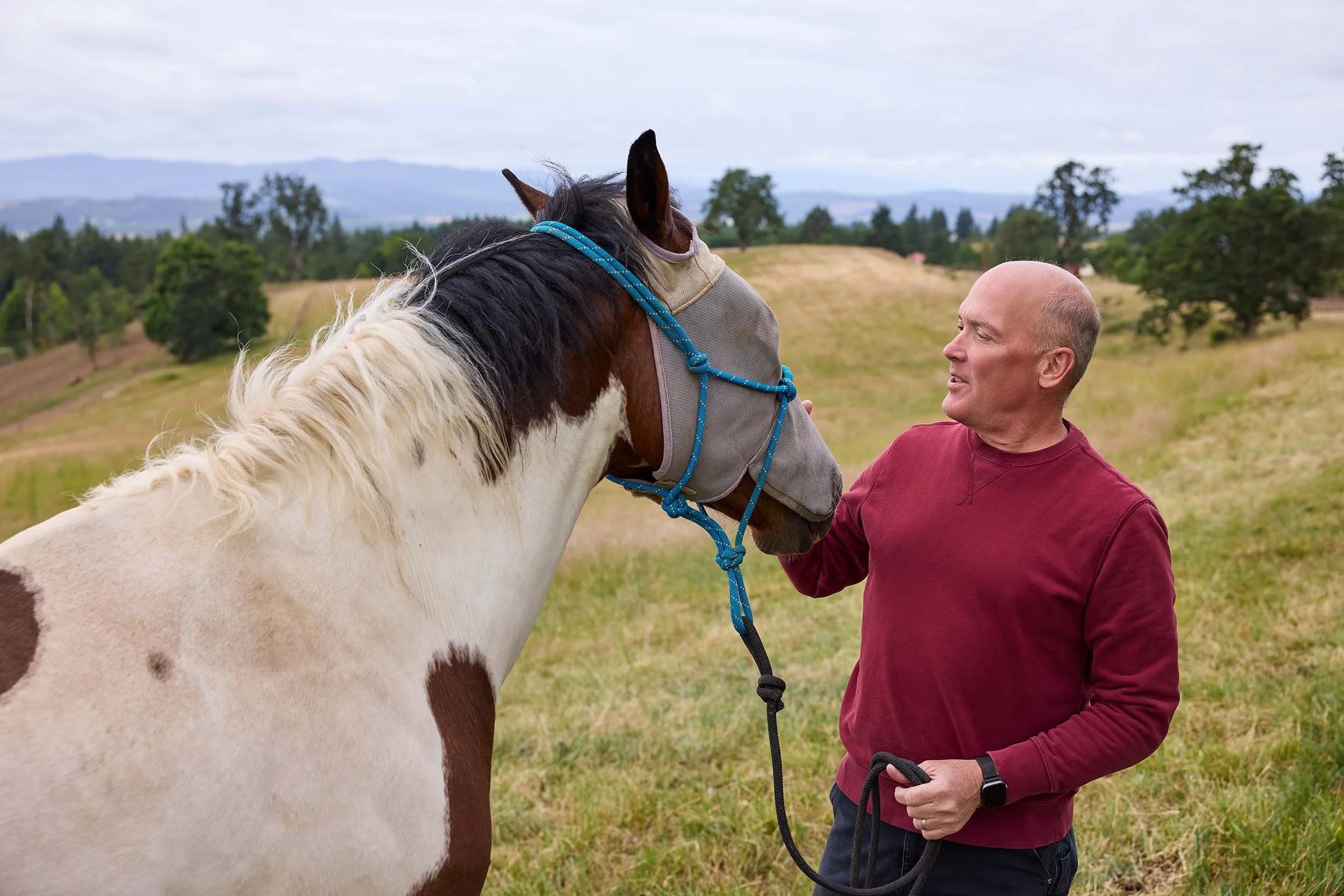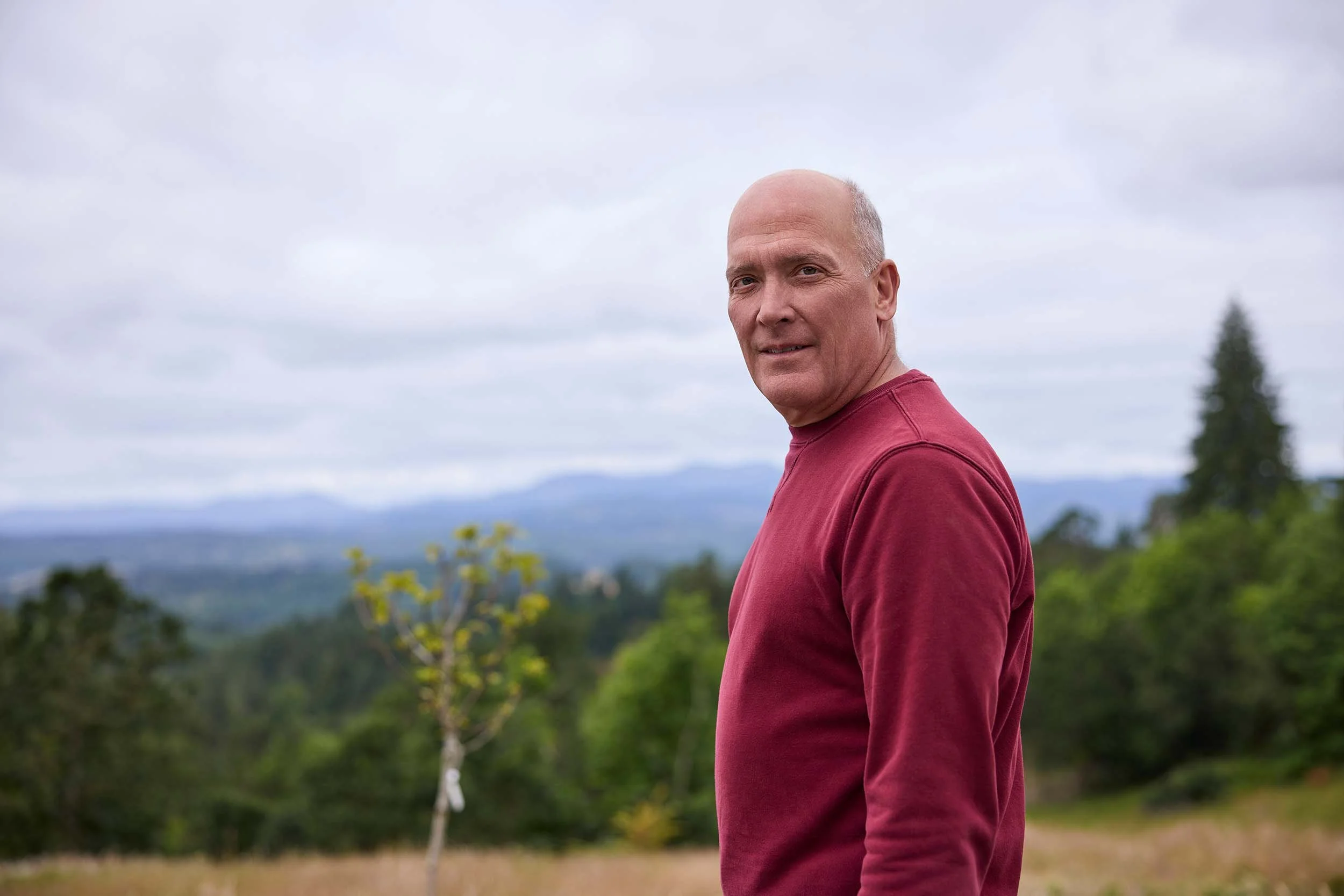Scott Hooper’s Electric Journey: From Houston Highrise to Oregon's Green Pastures
Scott Hooper is a semi-retired lawyer who left Houston with his family of four in 2018, toured the American West, and eventually bought almost 100 acres of farmland in the scenic Willamette Valley in Monmouth, Oregon. He grazed miniature Hereford cattle for several years, but sold the cattle in 2021 and now raises horses and is actively restoring his acreage to native white oak savanna. His journey from the hustle of Texas to the tranquil beauty of Oregon represents a significant shift towards sustainability–including when it comes to his choice of vehicles.
As Scott likes to joke, the Hooper family’s move from Houston was “a bit like a scene from The Beverly Hillbillies." The Hoopers with their dog and cat all piled into a large Ford F350 dually pickup truck that was towing a 43’ long “toy hauler” RV that sleeps four and includes a garage at the back to store bikes and gear. They visited a string of national parks while searching for a new home. When they arrived in Oregon, they found the perfect place to raise their kids, and more animals.
The Hoopers have a 19-year-old son at Oregon State University and an 18-year-old daughter starting at Colorado State in the fall. Their daughter is deeply involved in equestrian sports, including English jumping, Western sorting, and barrel racing, so they’re frequently on the road with several horses in tow. They used to tow their horse trailer with the F-350. “With diesel prices rising and concern about the environmental impact of the F-350, we were looking for a more efficient truck to replace the big diesel," explains Scott.




In 2023, they replaced both their diesel truck and electric sedan with a Rivian R1T. As Scott likes to say, “If you combine an electric sedan with an F-350, you get a Rivian R1T.” The Rivian has proven itself in all kinds of conditions, and they’ve already driven 40,000 miles in 24 months, including a few stints navigating in AWD "snow mode." They now use the Rivian as their daily driver, as well as to pull their 3-horse slant trailer. When traveling with the horses it has significantly reduced their fuel costs, from $0.50 per mile to $0.05 per mile, and even with diesel back down to pre-COVID prices they save almost $4,000 per year on fuel.
Two of Scott’s neighbors have also caught the EV bug and now own Ford Lightnings. Scott says that one of them gleefully awaits power outages so that he can plug his home into his EV and showcase the Lightning's “vehicle to home” backup generation capabilities.
EVs are clearly gaining ground in the Willamette Valley, and perched 780 feet above the valley floor in the Coast Range foothills, Scott and his family are helping lead the charge. Their lifestyle blends outdoor adventure, equestrian sports, and hands-on land restoration—all rooted in a deep commitment to sustainability. For the Hoopers, switching to an electric truck wasn’t just about saving money—it was a natural next step toward a life that’s simpler, cleaner, and more connected to the place they now call home.

